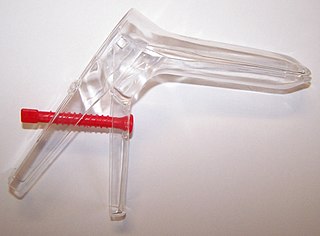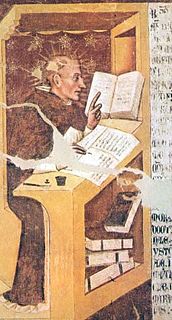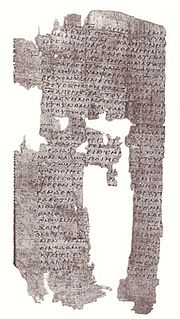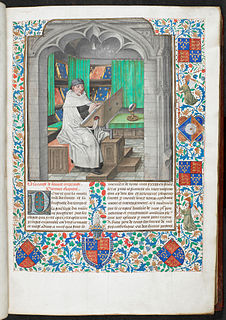The term speculum, Latin for "mirror", and its plural specula, may refer to:
Null may refer to:
Heavy may refer to:

The genus Ophrys is a large group of orchids from the alliance Orchis in the subtribe Orchidinae. They are widespread across much of Europe, North Africa, Caucasus, the Canary Islands, and the Middle East as far east as Turkmenistan.

A speculum is a medical tool for investigating body orifices, with a form dependent on the orifice for which it is designed. In old texts, the speculum may also be referred to as a diopter or dioptra. Like an endoscope, a speculum allows a view inside the body; endoscopes, however, tend to have optics while a speculum is intended for direct vision.
Great Mirror may refer to:

Vincent of Beauvais was a Dominican friar at the Cistercian monastery of Royaumont Abbey, France. He is known mostly for his Speculum Maius, a major work of compilation that was widely read in the Middle Ages. Often retroactively described as an encyclopedia or as a florilegium, his text exists as a core example of brief compendiums produced in medieval Europe.
Secondary is an adjective meaning "second" or "second hand". It may refer to:

Speculum metal is a mixture of around two-thirds copper and one-third tin, making a white brittle alloy that can be polished to make a highly reflective surface. It was used historically to make different kinds of mirrors from personal grooming aids to optical devices until it was replaced by more modern materials such as metal-coated glass mirrors.
Specula is the plural form of speculum and may refer to:
Dominus or domini may refer to:
Coon may refer to:

An otoscope or auriscope is a medical device which is used to look into the ears. Health care providers use otoscopes to screen for illness during regular check-ups and also to investigate ear symptoms. An otoscope potentially gives a view of the ear canal and tympanic membrane or eardrum. Because the eardrum is the border separating the external ear canal from the middle ear, its characteristics can be indicative of various diseases of the middle ear space. The presence of earwax (cerumen), shed skin, pus, canal skin edema, foreign body, and various ear diseases can obscure any view of the eardrum and thus severely compromise the value of otoscopy done with a common otoscope.

1 Corinthians 13 is the thirteenth chapter of the First Epistle to the Corinthians in the New Testament of the Christian Bible. It is authored by Paul the Apostle and Sosthenes in Ephesus. This chapter covers the subject of Love. In the original Greek, the word ἀγάπηagape is used throughout the "Ο ύμνος της αγάπης". This is translated into English as "charity" in the King James version; but the word "love" is preferred by most other translations, both earlier and more recent.
Castile or Castilla may refer to:
Adema or ADEMA may refer to:

The medieval genre of speculum literature, popular from the twelfth through the sixteenth centuries, was inspired by the urge to encompass encyclopedic knowledge within a single work. However, some of these works have a restricted scope and function as instructional manuals. In this sense encyclopedias and speculum are similar but they are not the same genre. Some have suggested that the modern equivalent is a summary survey, in the sense of a survey article in a scholarly journal that summarizes a field of research.
Plane or planes may refer to:

Speculum maius was a major encyclopedia of the Middle Ages, written by Vincent de Beauvais in the 13th century. It was a great compendium of all knowledge of the time. The work seems to have consisted of three parts: the Speculum Naturale, Speculum Doctrinale and Speculum Historiale. However, all the printed editions include a fourth part, the Speculum Morale, added in the 14th century and mainly compiled from Thomas Aquinas, Stephen de Bourbon, and a few other contemporary writers.
Gothic or Gothics may refer to:
Quinta may refer to: